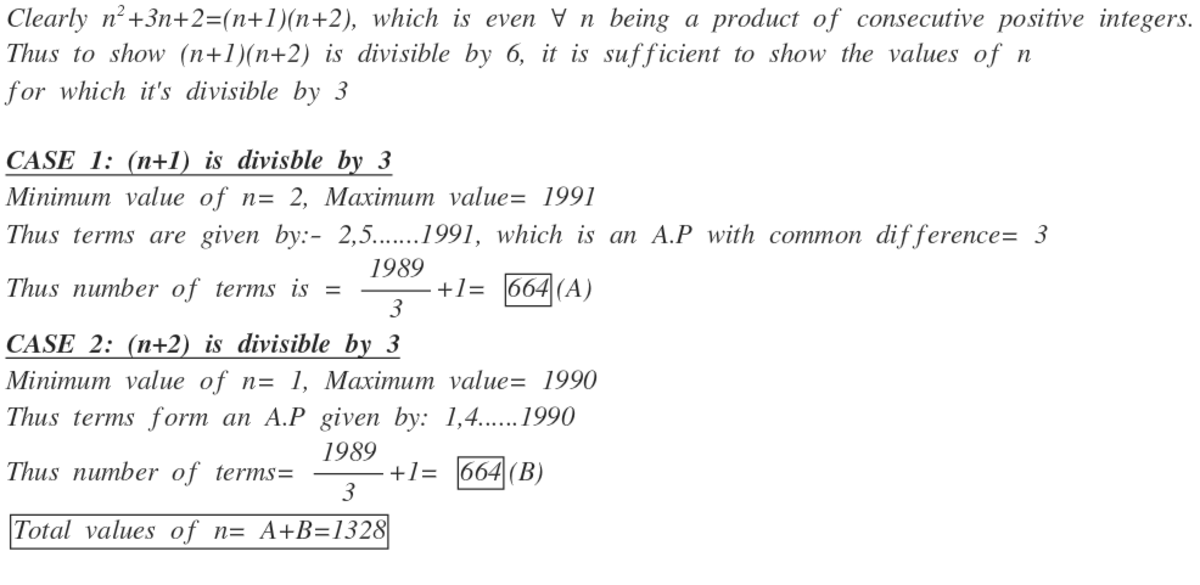Counting Solutions
Find the number of positive integers
n
for which
1
.
n
≤
1
9
9
1
2
.
6
is a factor of
n
2
+
3
n
+
2
The answer is 1328.
This section requires Javascript.
You are seeing this because something didn't load right. We suggest you, (a) try
refreshing the page, (b) enabling javascript if it is disabled on your browser and,
finally, (c)
loading the
non-javascript version of this page
. We're sorry about the hassle.
2 solutions
Actually, if you observe the polynomial carefully, it is even for all n (This can be explained using factorization). Also, since 3n is obviously divisible by 3, so n 2 must give a remainder of 1 when divided by 3 (this is because 3 ∣ n 2 + 2 ). Notice that there is no solution for n 2 ≡ 1 ( m o d 3 ) if n ∣ 3 , so there are ⌊ 3 1 9 9 1 ⌋ = 6 6 3 such n's. So, we have 1991-663=1328 that satisfy the given conditions in the problem.
Moderator note:
Good analysis of this problem.

n 2 + 3 n + 2 = ( n + 1 ) ( n + 2 ) Observe that if n is not divisible by 3 , then we get remainder 1 or 2 when n is divided by 3 .
⇒ either n + 1 or n + 2 is divisible by 3 .
⇒ 6 ∣ ( n + 1 ) ( n + 2 )
Since, as ( n + 1 ) ( n + 2 ) is the product of two consecutive integers, it is also divisible by 2 .
Thus, for 6 to be a factor of n 2 + 3 n + 2 , n shouldn't be divisible by 3 .
In order to find the number of positive integers less than or equal to 1 9 9 1 , we use the formula ⌊ 3 1 9 9 1 ⌋ = 6 6 3 Thus, the number of positive integers for which the given conditions hold true are 1 9 9 1 − 6 6 3 = 1 3 2 8